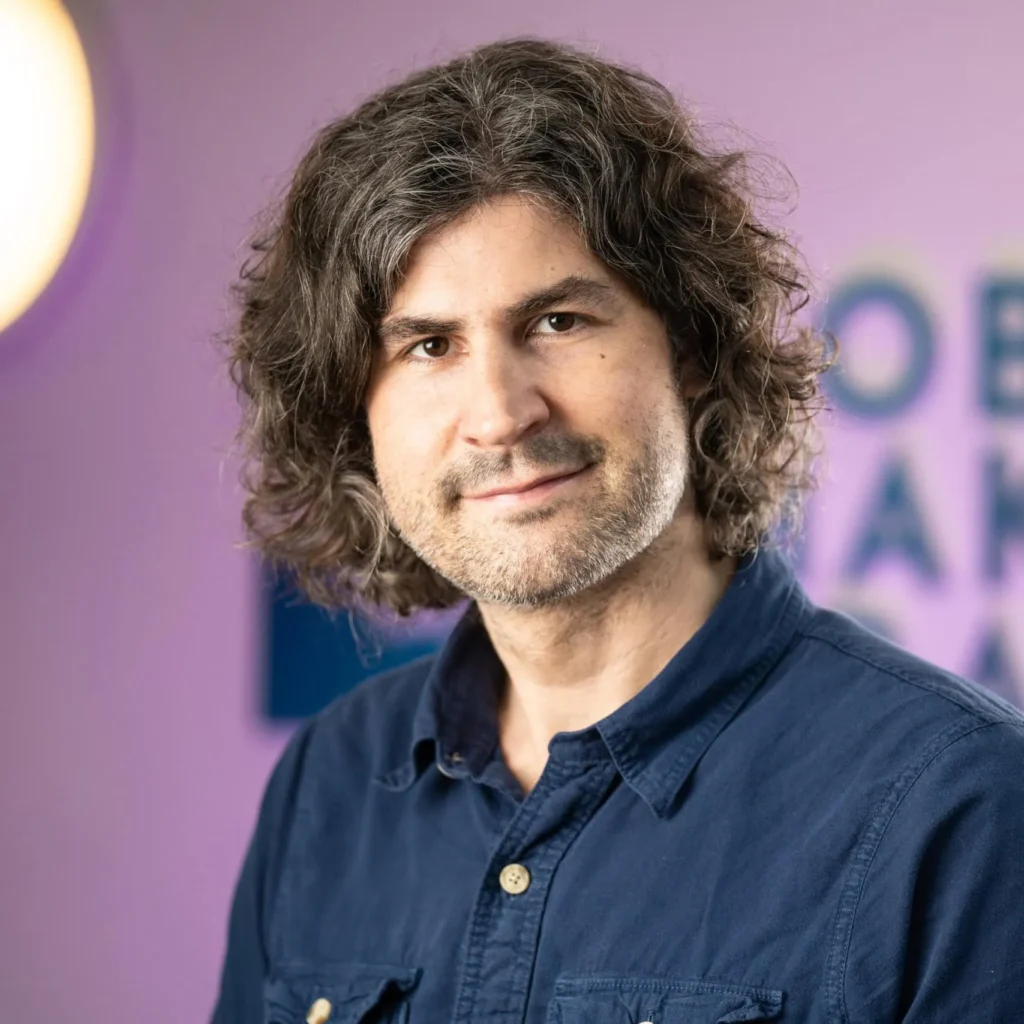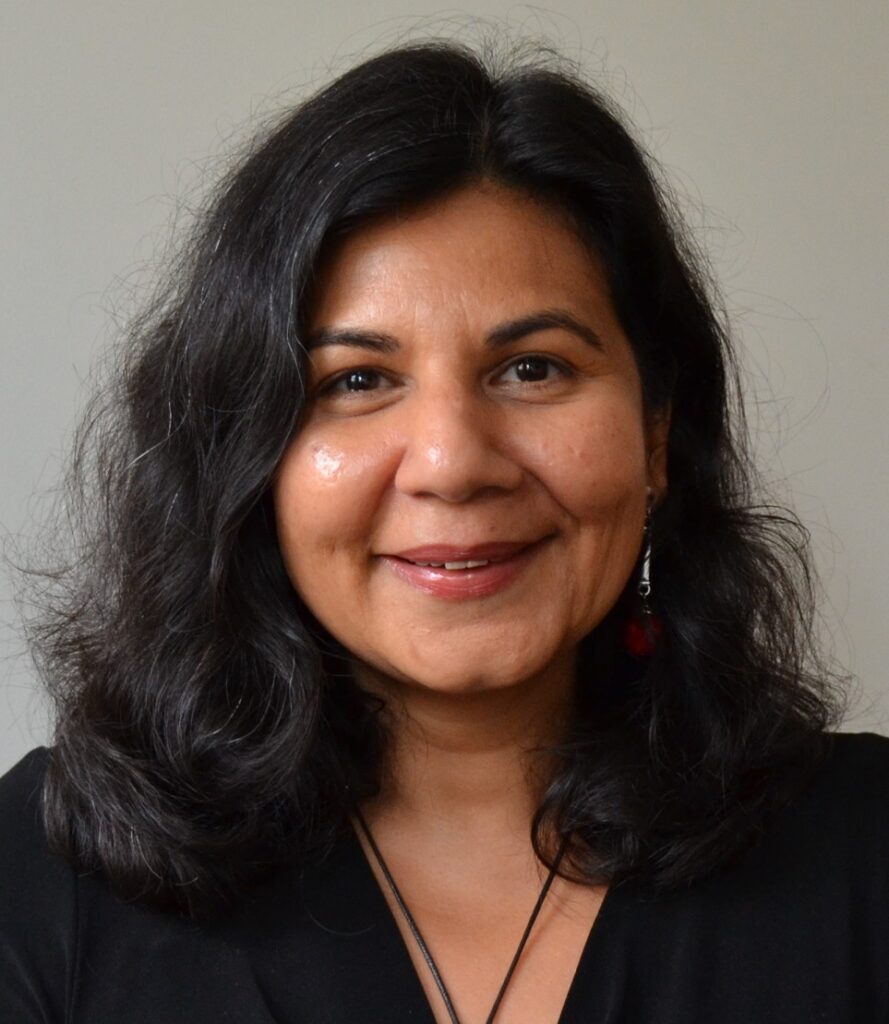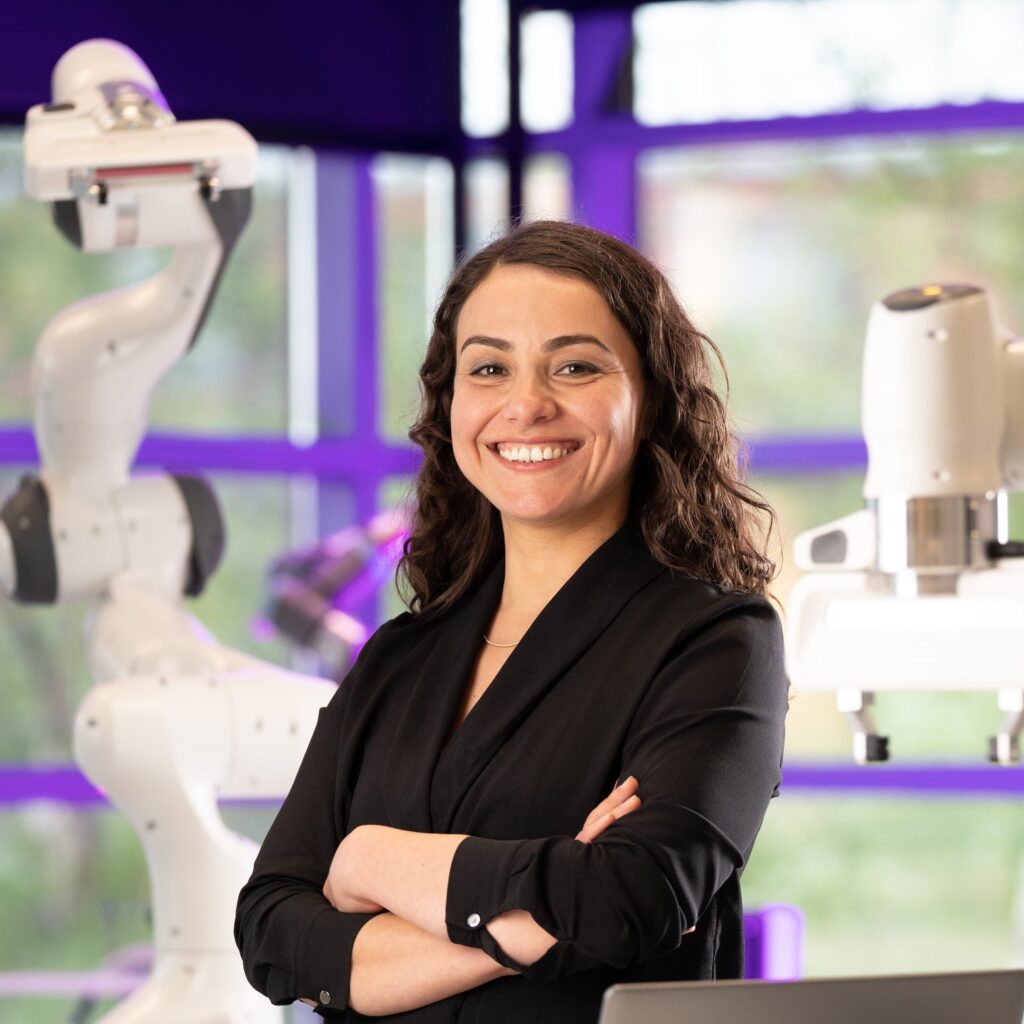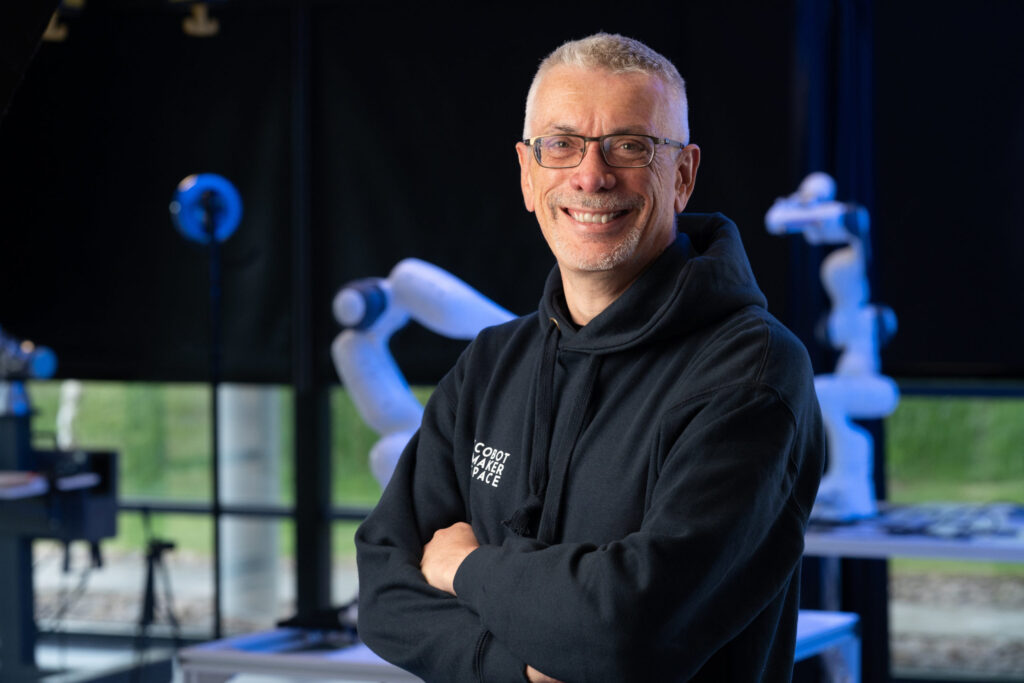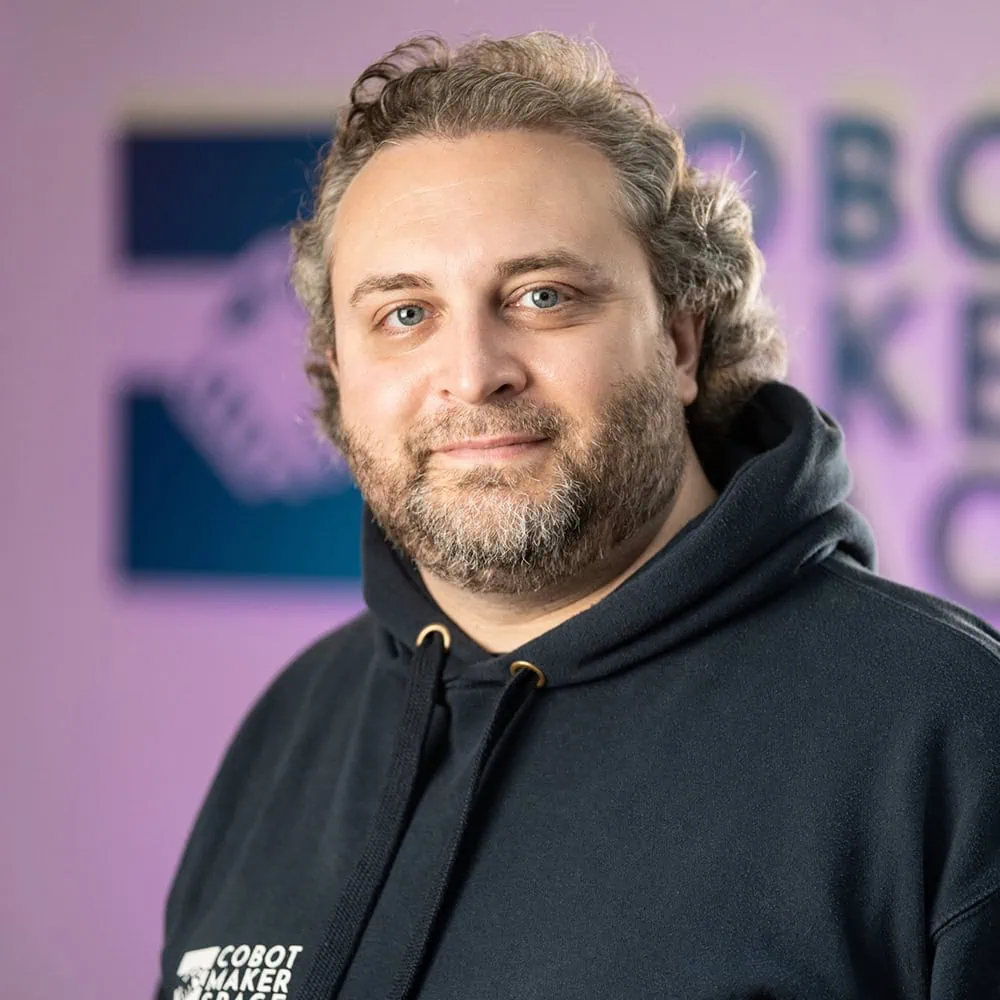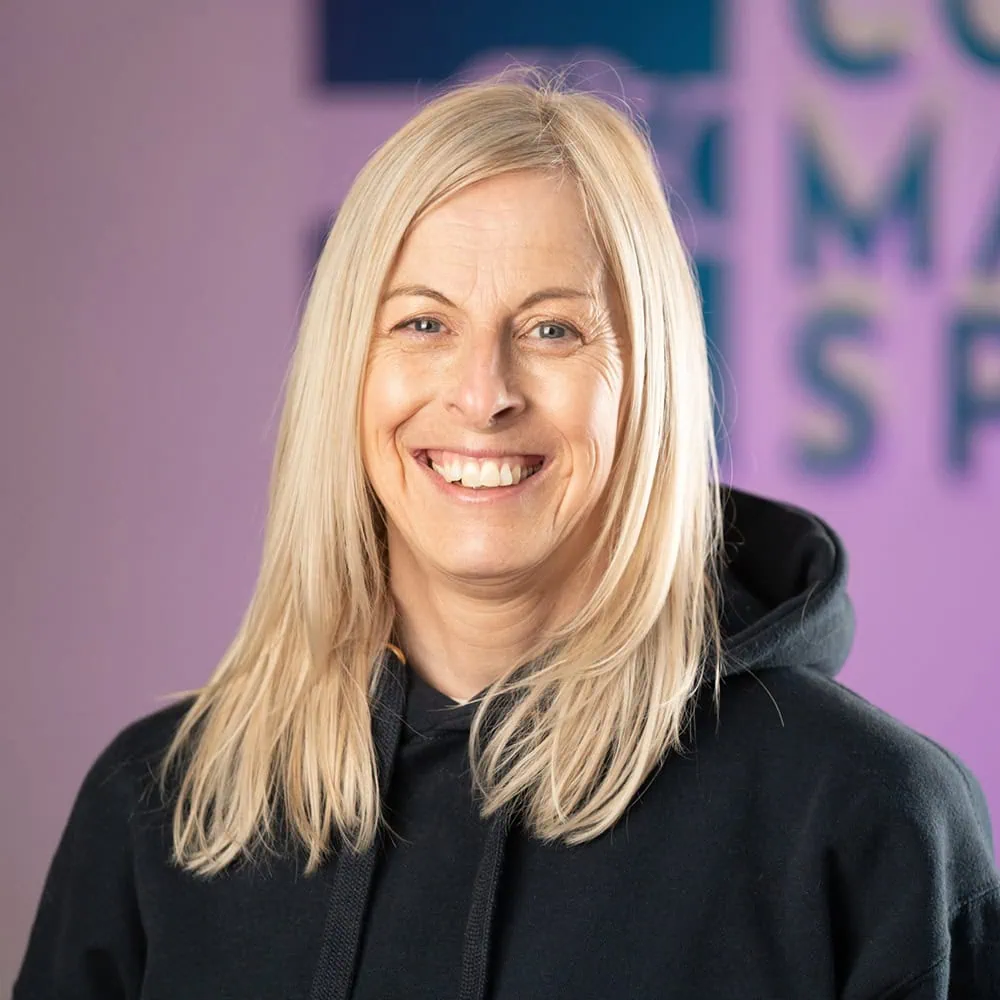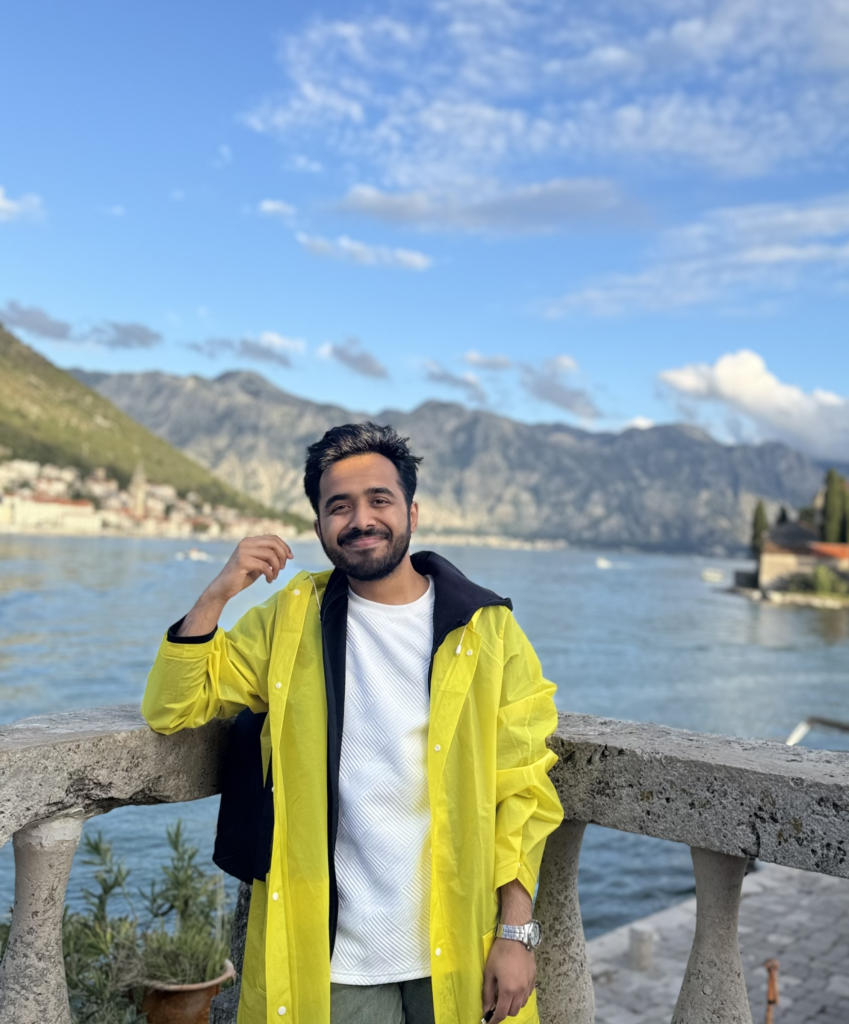Our People
@makercobot
FOLLOWKeep up to date with our latest updates on X
The Academics

Joel Fischer
Professor of Human-Computer Interaction
Joel Fischer is Professor of Human-Computer Interaction at the School of Computer Science, University of Nottingham, UK, where he is a member of the Mixed Reality Lab. His research takes a human-centred view on AI-infused technologies to understand and support human activities and reasoning and is frequently concerned with how interactive technology can be designed to support collocated people interacting face-to-face. Joel’s research approach is multidisciplinary, drawing on ethnography, participatory design, prototyping, and studies of technology deployments, often with an ethnomethodological and conversation analytic lens.
Praminda Caleb-Solly
Professor of Embodied Intelligence
Praminda Caleb-Solly is Professor of Embodied Intelligence in the School of Computer Science where she leads the Cyber-physical Health and Assistive Robotics Technologies (CHART) research group. She holds a BEng in Electronic Systems Engineering, MSc in Biomedical Instrumentation Engineering and a PhD in Interactive Evolutionary Computation. She joined the University of Nottingham in September 2021. Prior to joining Nottingham she was Professor of Assistive Robotics and Intelligent Health Technologies at the Bristol Robotics Lab, UWE, where she was leading the Robotics Engineering and Computing for Health Research Group and held the post of Associate Head of Department for Research and Scholarship.
Ayse Kucukyilmaz
Associate Professor of Robotics and Autonomous Systems
is Associate Professor of Robotics and Autonomous Systems in the School of Computer Science at the University of Nottingham, UK. Her research interests include haptics, human-robot interaction (pHRI), assistive robotics, and machine learning. Her team primarily works in building adjustable autonomy paradigms to enable dynamic switching behaviours between different levels of robotic autonomy (e.g. full human control vs. full autonomy) during shared/traded control of a physical task, enabling effective human-autonomy teaming.
Steve Benford
Dunford Professor of Computer Science
is the Dunford Professor of Computer Science at the University of Nottingham where he co-founded the Mixed Reality Laboratory. He is Director of the EPSRC-funded Horizon Centre for Doctoral Training and also Director of the University's Smart Products beacon of research excellence. He was previously an EPSRC Dream Fellow, a Visiting Researcher at Microsoft Research Cambridge and a Visiting Professor at the BBC.
Alan Chamberlain
Principal Research Fellow
My research interests are based in Human Computer Interaction (HCI) with a particular focus on interdisciplinary approaches to Human-Centred Design (HCD). As part of Somabotics, I will be working closely with Steve to develop novel and innovative methodologies and approaches to understand the intersection of Embodied AI, Robotics, Art, Design and People. As part of this we aim to continue our groundbreaking research collaborations with artists which will enable us to creatively explore embodied AI. We will develop a community relating to embodied AI, the Arts and Humanities, and Music. The project will allow us to explore interdisciplinary approaches to embodiment which will enable us to reflect on research areas such as pain, creativity, values, beliefs, and intimacy. I am grateful to be given the opportunity to expand upon my own research and practice in this area. Dr Alan Chamberlain is a Principal Research Fellow in the School of Computer Science and an Honourable Fellow in the Music Department (University of Nottingham). He is a Visiting Professor at Copenhagen Business School, and Aberystwyth University. He is the Creative Industries Sector Lead on the UKRI TAS Hub (£11.7 million), a Principal Research Fellow on RAI UK (£35 million, UKRI) and a Co-Investigator on the REC-HURDLEs project: Revisiting Employment Contracts and Help for Under-represented Researcher groups to Develop, Lead and Excel (£1 million, Wellcome Trust). Contact: Alan.Chamberlain @ Nottingham.ac.uk
The Operations Team

Lynn Rees
Operations Manager
Lynn is Operations Manager at the EPSRC funded Horizon Digital Economy Research Institute. She also supports the operations of the Mixed Reality Lab and Cobot Maker Space based at the School of Computer Science at the University of Nottingham and Nottingham-based academics and researchers collaborating on projects led by the Trustworthy Autonomous Systems Hub, RAi UK and the Somabotics: Creatively Embodying AI Fellowship.
Dominic Price
Lab Manager & Research Fellow
Dominic Price is a computer science research fellow at the University of Nottingham. His expertise lies in research software engineering to support human-computer and human-robot interaction. He has worked across number of projects in his 15 years in academic research, most recently the Trustworthy Autonomous Systems hub and the Responsible AI hub. He is the lab manager for and manages the day to day running of the Cobot Maker Space human-robot interaction research facility at the University of Nottingham.
Hazel Sayers
Knowledge Exchange and Impact Officer
is Knowledge Exchange and Impact Officer at the EPSRC funded Horizon Digital Economy Research institute and supports the operations of the Cobot Maker Space and Responsible Digital Futures group within the School of Computer Science at the University of Nottingham. She previously worked as Project Manager to the Stroke Theme in the Collaboration for Leadership in applied Health Research and Care (CLAHRC) and Clinical Theme Co-ordinator to the Stroke Programme within the East Midlands Academic Health Science Network (EMAHSN).
Simon Castle-Green
Senior Technical Specialist
is a Senior Technical Specialist working in the University of Nottingham’ Cobot Maker Space and the School of Computer Science. Within his role, he works alongside academics supporting Robotic related teaching and research activities. Research interests include utilising smart-sensing devices for rehabilitation, robotic teleoperation, and mobile robotics.
Mohammad Areeb Akhter
Senior Technician
Mohammad Areeb Akhter is the Senior Technician for Autonomous Robotics Systems at Cobot Maker Space. He specializes in robotic systems, ROS, and vision-based automation. Areeb holds an MSc in Mechatronics & Robotics from the University of Leeds and brings experience from multiple robotics and embedded projects in academia and industry.
